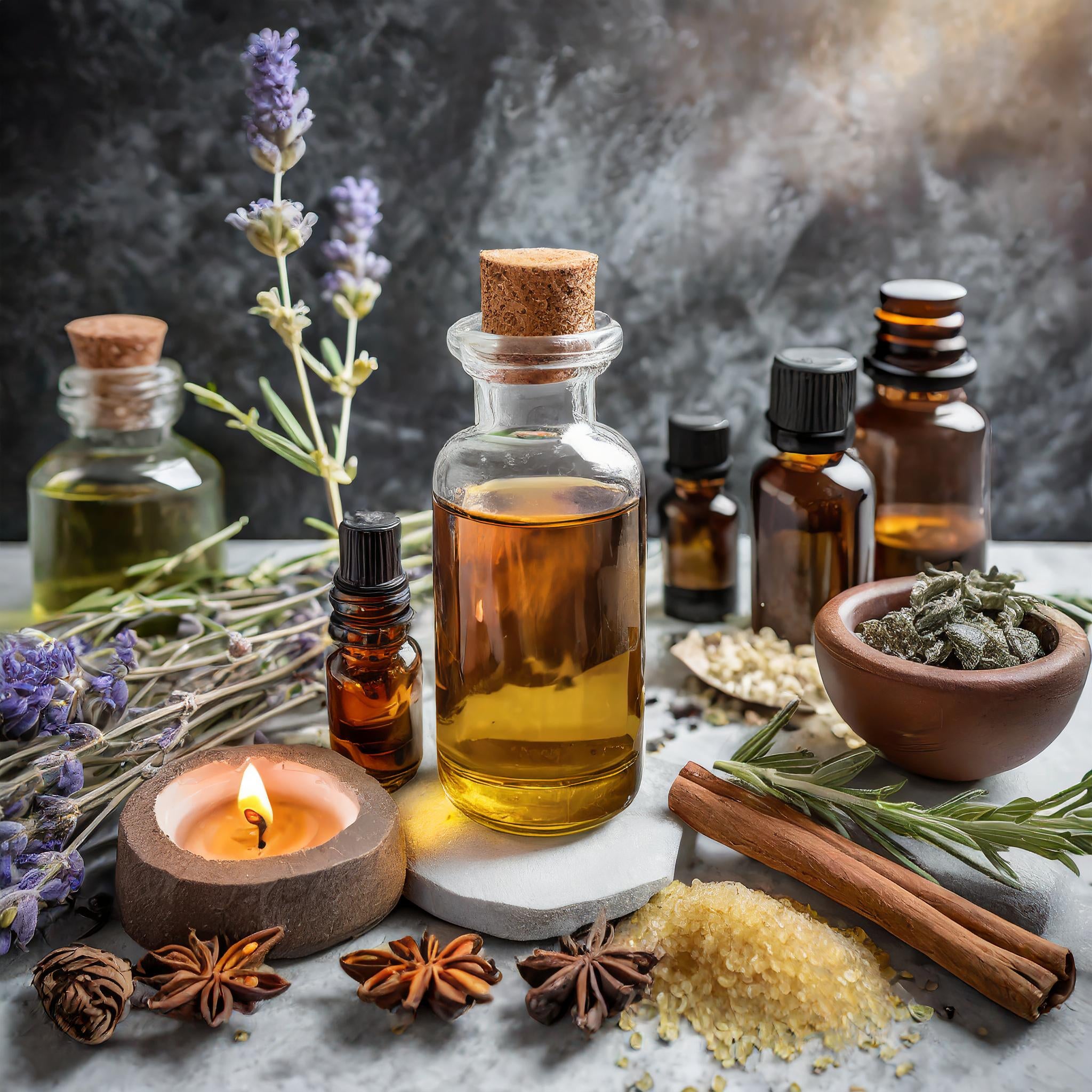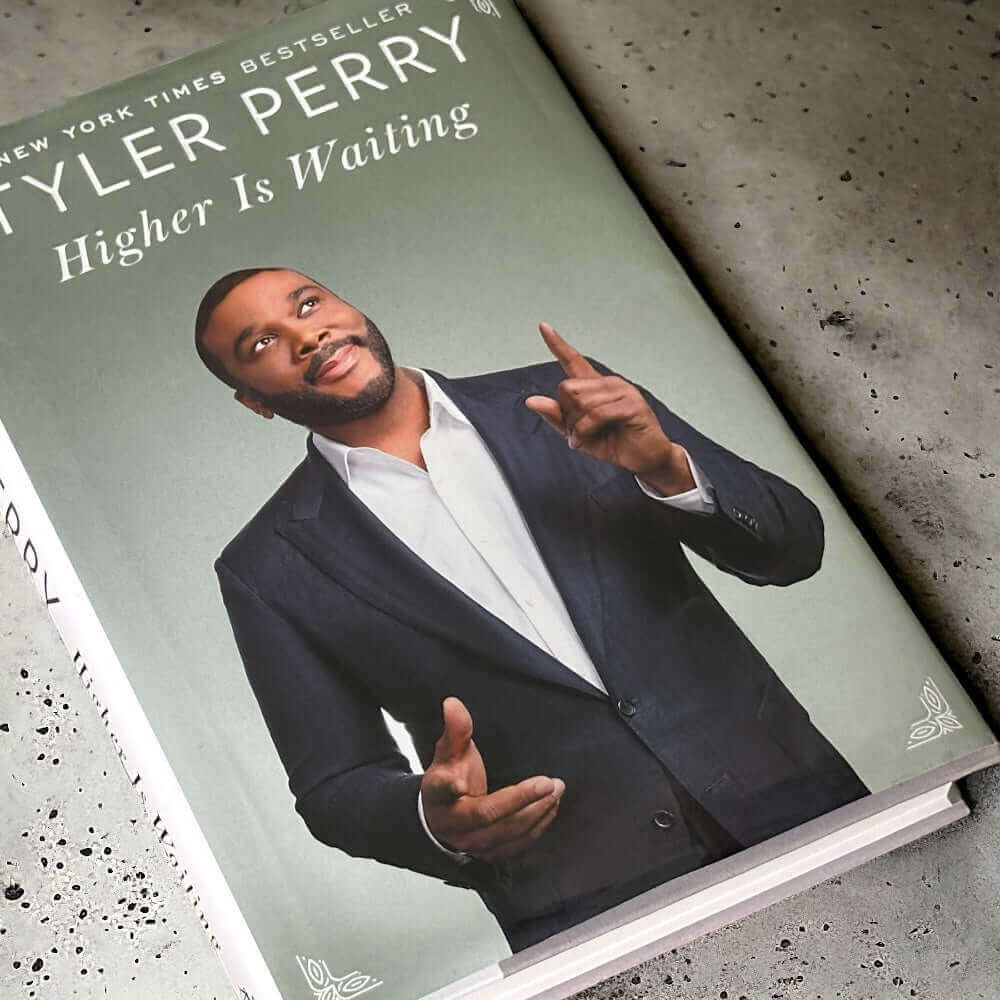
Unlock the Healing Power of Scent: A Beginner's Guide to Aromatherapy
What is Aromatherapy?
Aromatherapy is a holistic healing treatment that uses natural plant extracts, known as essential oils, to promote health and wellbeing. It seeks to utilize the aromatic compounds in essential oils to positively affect mood, relieve stress, and address acute and chronic health conditions. The key part of aromatherapy lies in essential oils, which are concentrated extracts distilled from the roots, leaves, seeds, or blossoms of plants.
Popular essential oils used in aromatherapy include lavender, peppermint, tea tree, chamomile, and eucalyptus. Each essential oil has its own unique therapeutic properties. Aromatherapy has ancient origins, with the first recorded use of aromatic plant extracts dating back over 6,000 years to ancient Egypt, China, and India. Ancient cultures used aromatics for medicinal, spiritual and cosmetic purposes, recognizing their healing potential.

In modern times, French chemist René-Maurice Gattefossé coined the term "aromatherapy" in 1937 when he discovered the healing properties of lavender oil after burning his hand severely in a laboratory explosion. His observation led him to analyze the therapeutic effects of other essential oils over the next several decades. Today, aromatherapy is used in a variety of settings, from clinical contexts to home use. Research continues to emerge on the mechanisms and benefits of aromatherapy. However, many experts acknowledge there is still much more to uncover about the science behind this ancient healing art.
How Aromatherapy Works.
Aromatherapy utilizes essential oils derived from plants, flowers, trees, roots, and other natural materials. These essential oils contain the aroma, or essence, of the plant they were extracted from. The scents from essential oils work primarily through our sense of smell. When you inhale an essential oil, the tiny molecules enter your nose and stimulate olfactory receptors.
These receptors send signals along the olfactory nerve pathways to the limbic system of the brain. The limbic system is the portion of the brain that regulates emotion, mood, behavior, motivation, long-term memory, and autonomic nervous system functions like heart rate, breathing, and blood pressure. This is why smells can trigger memories or intense feelings.
When inhaled, the aroma molecules of essential oils stimulate the limbic system by binding to receptors in the nose that connect to the brain through the olfactory system. This stimulation produces an immediate physiological response. The limbic system sends signals to other parts of the body that control things like breathing, heart rate, stress response, alertness, blood pressure, and immune function. This allows essential oils to have nearly instant effects on your mental, emotional, and physical state when inhaled. The limbic system response can help relieve anxiety, lift mood, increase relaxation, and reduce pain signals.
Benefits of Aromatherapy
Aromatherapy offers numerous benefits for both the mind and body. The therapeutic effects of essential oils have been documented for centuries. While more research is still needed, studies have found aromatherapy can help with:
Stress and Anxiety Relief:
Inhaling essential oils like lavender, bergamot, and ylang ylang has been shown to reduce stress and anxiety levels. The pleasant aroma of the oils can stimulate the limbic system and activate a relaxation response. Lavender oil in particular has demonstrated effectiveness for alleviating anxiety. One study found lavender reduced anxiety compared to a placebo when inhaled before a dental procedure.
Improved Sleep:
Lavender oil is the most popular essential oil for sleep. Studies show smelling lavender oil before bed increases slow-wave sleep, the deepest stage of sleep. Chamomile oil also has sedative and relaxation properties that can promote better sleep. Diffusing calming scents in the bedroom is an effective way to create a relaxing pre-bedtime routine.
Natural Pain Relief:
Peppermint, clove, rosemary and lavender oils have analgesic effects. Peppermint oil applied topically has been shown to reduce headaches. Eucalyptus oil can relieve muscle pain when used in massage. These oils likely work by blocking pain receptors in the brain. Aromatherapy can be a safer alternative to medications for pain management. The relaxing and sedative effects of aromatherapy make it an excellent natural remedy for common issues like stress, anxiety, and poor sleep. Research also indicates aromatherapy’s potential for safely relieving pain. People can experience the numerous benefits by diffusing essential oils or using them topically. With proper precautions, aromatherapy is generally very safe and effective.
Popular Essential Oils
Some of the most popular and commonly used essential oils in aromatherapy include:
Lavender Oil
Lavender oil is renowned for its calming and relaxing effects. It's excellent for relieving stress, anxiety, and insomnia. Lavender can also help ease headaches, depression, and pain from minor burns or bug bites when applied topically. The soothing scent of lavender makes it one of the most versatile essential oils.
Peppermint Oil
Peppermint oil offers a cooling sensation that can relieve sore muscles, headaches, and digestive issues like nausea or irritable bowel syndrome. It's also energizing and may improve concentration and focus when inhaled. Peppermint oil should be used in moderation as it can occasionally cause skin irritation.

Bergamot Oil
With its crisp, citrusy aroma, bergamot oil is effective for reducing anxiety and stress. It may also boost mood and relieve depression. Bergamot can help heal skin irritations and reduce scarring when applied topically. However, it increases sun sensitivity so avoid sun exposure after using.
Eucalyptus Oil
Eucalyptus oil is commonly used to relieve coughs, colds, congestion and allergies. It can also lessen pain and swelling associated with headaches, muscle aches, and arthritis when massaged into the skin. Eucalyptus has antimicrobial properties as well, so it's useful for treating minor wounds. But it should be diluted before applying to skin to avoid irritation.
Using Essential Oils
Essential oils can be used in several ways to obtain their benefits:
Topical Application
One of the most common ways to use essential oils is to apply them topically to the skin. Oils should always be diluted in a carrier oil before applying them directly. Carrier oils help spread the essential oils and prevent skin irritation. Good carrier oil options include coconut oil, jojoba oil, almond oil and olive oil. Add 5-10 drops of essential oil per ounce of carrier oil. Apply the diluted oil mix to pulse points like the wrists, temples, chest, or bottoms of feet. The skin will absorb the oils into the bloodstream.
Inhalation
Inhaling essential oils allows the nasal cavity to absorb their beneficial compounds. Oils can be diffused using an essential oil diffuser, which breaks up the oil molecules and disperses them into the air. Add 10-15 drops of oil to the diffuser reservoir with water and turn on the unit. Deeply inhale the aroma-filled air. You can also inhale oils directly from the bottle or by placing a few drops on a cloth.
Ingestion
Some essential oils can be ingested by adding 1-2 drops to water, tea, smoothies, or other drinks. However, this method is controversial, and you need guidance from a certified aromatherapist on proper dosage and dilution. Never ingest oils undiluted. Only use food-grade oils approved for internal use. Improper ingestion can be toxic. Start with very small amounts like 1 drop and monitor your body's reaction.
Aromatherapy for Stress
Stress hormones like cortisol can build up in your body and have negative impacts on your physical and mental health. Aromatherapy with certain essential oils can help reduce stress and anxiety by lowering cortisol levels. Research shows that inhaling lavender oil reduces cortisol levels in the saliva. Lavender also decreases heart rate and blood pressure, promoting calmness and relaxation. Other anti-stress oils include bergamot, clary sage, Roman chamomile, and ylang ylang.
These oils contain compounds like linalool and linalyl acetate which interact with neurotransmitters in the brain that govern mood. Diffusing calming essential oils can create a relaxing environment before bedtime. You can also apply diluted oils topically to pulse points like the wrists, temples, and neck.
Performing an aromatherapy massage with anti-stress oils is another great option. Just inhaling lavender, ylang ylang, or bergamot for a few minutes when you feel stressed or anxious can help lower cortisol and relieve tension in both the mind and body. Aromatherapy is an easy, natural way to manage stress anywhere, anytime.
Aromatherapy for Better Sleep

One of the most common uses of aromatherapy is to promote better sleep and treat insomnia. The calming and relaxing effects of certain essential oils can help prepare your body and mind for restful sleep.
Chamomile oil is one of the most popular oils used for combating insomnia and sleeplessness. It contains compounds that can help initiate sleep such as the terpenoid bisabolol. Breathing in chamomile oil vapors helps reduce anxiety and racing thoughts, allowing you to feel sleepy and relaxed. Some studies have found inhaling chamomile oil can increase the amount of time spent in deep sleep. Other oils that are beneficial for sleep include lavender, bergamot, and cedarwood oils.
Lavender in particular has extensive research showing it improves overall sleep quality. To use aromatherapy for better sleep, add a few drops of essential oil into a diffuser by your bed and turn it on 30 minutes before you want to sleep. You can also dilute several drops of oil in a carrier oil and apply it to your temples or wrists. Or simply keep an open bottle by your pillow. Having a regular aromatherapy routine before bed signals to your body it's time to wind down. Try to do your routine at the same time each night.
The key is consistency, so your body associates the scent with sleep. Aromatherapy can help you fall asleep faster, stay asleep longer, and wake up feeling more refreshed. By reducing anxiety and relaxing your body using natural plant extracts, you give your mind the rest it needs.
Aromatherapy for Pain Relief
Aromatherapy can be an effective way to find natural relief from pain, especially headaches, muscle aches and arthritis. The essential oils used in aromatherapy have analgesic and anti-inflammatory properties that can relax tense muscles and joints and provide soothing relief. One of the most popular and effective essential oils for pain relief is peppermint oil. The menthol contained in peppermint oil provides a cooling sensation by stimulating cold receptors in the skin. This helps to reduce inflammation that contributes to pain.
Peppermint oil also increases blood flow when applied topically, which speeds healing to painful areas. Research shows peppermint oil is highly effective for tension headaches and migraines when applied to the forehead and temples. The cooling effect of peppermint oil helps restrict blood vessels in the head, relieving the throbbing pain of headaches.
One study found applying a 10% peppermint oil solution significantly reduced headache intensity within 15 minutes compared to acetaminophen. Peppermint oil can also be massaged into sore or tense muscles for natural pain relief. It contains menthol and menthone which have been shown to reduce muscle spasms and relax contracted muscles.
Mix a few drops of peppermint oil with a carrier oil like coconut or jojoba oil and massage into problem areas. The warming and cooling effect stimulates blood flow to the area for faster healing. Many arthritis suffers find relief using peppermint oil.
The anti-inflammatory and analgesic properties of peppermint oil help reduce swelling, ease muscle spasms and numb localized pain when applied topically to joints or problem areas. Peppermint oil should never be ingested or applied undiluted on the skin, but can provide great natural arthritis relief when used properly.
Safety Tips for Using Essential Oils
When using essential oils, it's important to keep safety in mind. Here are some tips for safe and effective aromatherapy:
Dilute Oils Properly
Essential oils are highly concentrated and can cause irritation if applied directly to the skin. Always dilute essential oils before topical use in a carrier oil like coconut, jojoba, or sweet almond oil. A general guideline is to add 12 drops of essential oil per 1 ounce of carrier oil. Also do a patch test on a small area first.
Avoid Photosensitivity
Some citrus oils like bergamot, lemon, and lime can cause the skin to become extra sensitive to UV light. This makes you more prone to sunburn. Avoid sun exposure and tanning beds for 12-24 hours after applying these photosensitive oils.
Use High Quality Oils
The quality of essential oils can vary greatly. Lower grade oils may be diluted with synthetic fragrances or contain impurities. Only buy from reputable brands and check for signs of purity like the Latin botanical name and extraction method on the label. Price can indicate quality too.
Talk to Your Doctor
Before ingesting essential oils or using large amounts topically, check with your doctor first. Certain medical conditions and medications can interact with essential oils. Pregnant women should also exercise caution. Being aware of these safety tips will allow you to incorporate essential oils into your routine in a healthy way. Aromatherapy should bring balance to your body and mind when used with care.
Getting Started with Aromatherapy
Getting started with aromatherapy is easy. Here are some tips for beginners:
Choose Your Essential Oils
When first exploring aromatherapy, start with some of the more popular essential oils like: - Lavender oil - Soothes stress and promotes relaxation - Lemon oil - Uplifts mood and reduces fatigue - Peppermint oil - Sharpens focus and boosts energy - Tea tree oil - Supports immune system and skin health - Eucalyptus oil - Clears sinuses and breathing Look for 100% pure, therapeutic-grade oils from reputable brands. Avoid oil blends when first starting out so you can learn each oil's individual scent and benefits.
Pick a Diffuser
An essential oil diffuser disperses the aroma of the oils into the air. There are many types of diffusers available. Some popular options: - Ultrasonic diffusers - Uses water and ultrasonic vibrations to diffuse the oil. Silent and efficient. - Nebulizing diffusers - Uses pressurized air to diffuse the oil quickly without water. - Evaporative diffusers - Exposes the oil to air to facilitate evaporation. Simple and inexpensive. Choose one that fits your space and diffusing needs. Make sure it runs for at least 2-4 hours.
Learn Proper Use
Read up on safe usage before trying aromatherapy. Things to know: - Always dilute oils before applying to skin. Use a carrier oil like coconut or jojoba oil. - Do a patch test before wide-scale use to check for allergic reaction. - Take care around eyes, inner ears, sensitive areas. - Monitor children and pregnant women's use. Start slowly with minimal applications to see how you respond.
Consult Resources
Reference books, websites, and aromatherapy associations can provide usage guidance: - National Association for Holistic Aromatherapy - Aromahead Institute - Tisserand Institute Subscribe to newsletters, take classes, and connect with an aromatherapist to continue learning. Soon aromatherapy can be part of your daily routine!



Leave a comment
This site is protected by hCaptcha and the hCaptcha Privacy Policy and Terms of Service apply.